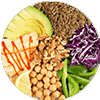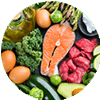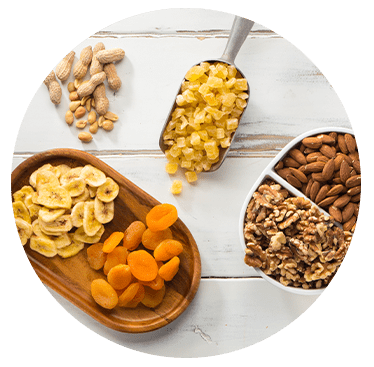
Back in the 1970s, scientists identified fat as a major risk toward heart disease. The idea was that fat turned into cholesterol and high cholesterol caused heart disease. In the 1990s, scientists realized that there are two types of cholesterol in the body: the high-density lipoprotein (HDL) particles, often called “good” cholesterol; and the low-density lipoprotein (LDL) particles, often referred to as the “bad” cholesterol. We were warned to avoid saturated fats like butter, cheese and meat because these foods contained the “bad” cholesterol which aggressively increases levels of LDLs, thus increasing our risk for cardiovascular disease.
Recently, scientists discovered two different kinds of bad cholesterol particles. One is large and fluffy and the other is small and dense. According to research, it’s the small and dense LDL particles—most likely caused by elevated insulin levels—that increase the risk of heart disease. In moderation, saturated fats like dairy, meat, bacon, butter and coconut oil may not increase the risk of heart disease.
Moderate Consumption is Key
- Butter: Butter boosts many nutrients that protect the heart including vitamins A, D, E, and K, and minerals calcium, selenium and magnesium. Choose Sprouts Organic Butter and reduce your exposure to antibiotics, added hormones and GMOs.
- Meat: Grass-fed meat contains higher levels of long chain omega-3 fatty acids and conjugated linoleic acid (CLA) which may improve the functions of metabolism, immune, nervous and cardiovascular systems.
- Avocados: Avocados contain mono and polyunsaturated fat, and are rich in heart-healthy omega-3s. 1/5 of a medium avocado has 50 calories and provides ample amounts of fiber, potassium and magnesium.
- Coconut Oil: Coconut oil is easily utilized by the body. It contains healthy fats called medium chain triglycerides (MCTs) that increase the efficiency of the liver to burn fat for energy—great for losing weight or maintaining a healthy body weight.
- Dairy: Full-fat dairy slows the breakdown of lactose—a milk sugar—in the liver. Without fat, lactose is digested much more quickly; the liver converts the sugar to fat, resulting in weight gain. Elevated insulin levels and increased weight gain may increase the risk of cardiovascular disease and strokes.
 Back in the 1970s, scientists identified fat as a major risk toward heart disease. The idea was that fat turned into cholesterol and high cholesterol caused heart disease. In the 1990s, scientists realized that there are two types of cholesterol in the body: the high-density lipoprotein (HDL) particles, often called “good” cholesterol; and the low-density lipoprotein (LDL) particles, often referred to as the “bad” cholesterol. We were warned to avoid saturated fats like butter, cheese and meat because these foods contained the “bad” cholesterol which aggressively increases levels of LDLs, thus increasing our risk for cardiovascular disease.
Recently, scientists discovered two different kinds of bad cholesterol particles. One is large and fluffy and the other is small and dense. According to research, it’s the small and dense LDL particles—most likely caused by elevated insulin levels—that increase the risk of heart disease. In moderation, saturated fats like dairy, meat, bacon, butter and coconut oil may not increase the risk of heart disease.
Back in the 1970s, scientists identified fat as a major risk toward heart disease. The idea was that fat turned into cholesterol and high cholesterol caused heart disease. In the 1990s, scientists realized that there are two types of cholesterol in the body: the high-density lipoprotein (HDL) particles, often called “good” cholesterol; and the low-density lipoprotein (LDL) particles, often referred to as the “bad” cholesterol. We were warned to avoid saturated fats like butter, cheese and meat because these foods contained the “bad” cholesterol which aggressively increases levels of LDLs, thus increasing our risk for cardiovascular disease.
Recently, scientists discovered two different kinds of bad cholesterol particles. One is large and fluffy and the other is small and dense. According to research, it’s the small and dense LDL particles—most likely caused by elevated insulin levels—that increase the risk of heart disease. In moderation, saturated fats like dairy, meat, bacon, butter and coconut oil may not increase the risk of heart disease.





















 VIEW ALL
VIEW ALL



